1. AI Solution Design & Development
- Design, develop, and deploy AI/ML models that address real-world challenges using state-of-the-art (SOTA) techniques.
- Implement and optimize deep learning models across domains such as NLP, Computer Vision, and Generative AI (e.g., LLMs, diffusion models).
- Translate high-level concepts and research outcomes into scalable, production-ready systems.
- Develop reusable modules and model pipelines that align with engineering best practices.
- Collaborate with AI Researchers, AI Engineers and product teams to bring innovative ideas to life.
2. Data Engineering & Modeling
- Handle structured and unstructured data from various sources including images, videos, and text.
- Conduct data cleaning, feature engineering, and augmentation to prepare datasets for model training.
- Apply and fine-tune deep learning architectures (e.g., CNNs, Transformers, GANs, ViTs) for targeted use cases.
- Implement SOTA techniques from academic and industry literature to improve model performance.
3. System Integration, MLOps & Deployment
- Build end-to-end machine learning pipelines for model training, evaluation, deployment, and monitoring.
- Use MLOps tools (e.g., MLflow, Kubeflow, Airflow, DVC) for experiment tracking, model versioning, and reproducibility.
- Containerize ML applications using Docker and deploy via CI/CD pipelines in cloud or on-prem environments.
- Leverage cloud AI/ML platforms (e.g., AWS SageMaker, GCP Vertex AI, Azure ML) for scalable and secure deployment.
- Monitor model performance in production and implement mechanisms for retraining and updates.
4. Collaboration & Continuous Improvement
- Collaborate with cross-functional teams (software, product, business) to align AI solutions with user and business needs.
- Stay updated with the latest trends and advancements in AI, deep learning, and generative models.
- Contribute to internal knowledge sharing and technical documentation.
- Participate in code reviews, propose technical improvements, and mentor junior engineers in AI best practices.
What You Need To Maximize Your Contribution
1. Education & Experience
- BSc or MSc in Computer Science, AI, Data Science, Software Engineering, or a related technical discipline.
- 4+ years of industry experience delivering AI/ML systems from prototype to production.
- Strong hands-on experience with deep learning and modern ML workflows.
- Exposure to real-world applications in domains such as Computer Vision, NLP, or Generative AI.
2. Technical Skills
- Proficiency in Python; familiarity with Java or C++ is a plus.
- Strong experience with ML/DL frameworks such as PyTorch, TensorFlow, HuggingFace Transformers, Keras.
- Skilled in building and fine-tuning models for vision (CNNs, ViTs), text (LLMs), or generative tasks (GANs, diffusion models).
- Experience with data processing libraries (Pandas, NumPy), SQL/NoSQL databases, and data pipelines.
- Moderate experience in MLOps practices, including:
- MLflow, Airflow, or DVC for lifecycle management
- Docker and Kubernetes for containerization and orchestration
- Git and CI/CD for continuous delivery
- Familiarity with monitoring tools and logging for deployed ML services.
3. Soft Skills
- Strong analytical thinking and problem-solving capabilities.
- Excellent communication skills to work with technical and non-technical stakeholders.
- Ability to work independently and in a collaborative environment.
- Eagerness to explore new technologies and a passion for innovation.
- Attention to detail and a mindset for reproducibility and scalability.
4. Preferred (Nice to Have)
- Experience working with LLMs or foundation models in applied projects.
- Exposure to edge deployment or real-time inference systems.
- Contributions to open-source ML/AI projects or experience presenting at meetups/conferences.
- Domain experience in Smart Retail, Finance, or Digital Assistants.







